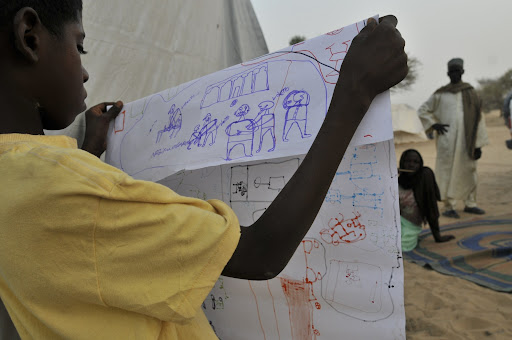Childhood Trauma Persists As Insecurity Widens In Nigeria
As conflict persists in various parts of Nigeria, particularly in the Northeast and parts of the Northwest, its impact on children cannot be overemphasised.

According to the United Nations International Children Emergency Fund (UNICEF)’s State of the World’s Children report published in October, children are often on the frontlines of humanitarian crises. This study is centred around the promotion and protection of children’s mental health.
UNICEF, which is currently in its 75th year, was established in 1946 in the aftermath of the second world war to help children and young people whose lives and futures are at risk. In Nigeria, the UN body plays a critical role in providing access to shelter, good nutrition, clean water and sanitation, healthcare and education for children in vulnerable communities.
The report stated that around the world, mental disorders are significant but often ignored despite its interference with children’s and young people’s health, education, and their ability to reach their full potential.
“Many children are filled with sadness, hurt or anxiety. Some are wondering where this world is headed and what their place is in it. Indeed, these are very challenging times for children and young people, and this is the state of their world in 2021,” Henrietta H. Fore, UNICEF Executive Director, said.
One of the report’s key messages is that the number of psychiatrists who specialize in treating children and adolescents is fewer than 0.1 per 100,000 in all but high-income countries, where the figure is 5.5 per 100,000. It also adds that “investment in promoting and protecting mental health, as distinct from caring for children facing the greatest challenges, is extremely low.”
Imaobong Sanusi, a psychotherapist with Women Trafficking and Child Labour Eradication Foundation (WOTCLEF), told HumAngle that conflict affects children differently, depending on several factors such as the family’s socio-economic status, household stability, and age and gender of the child.
Sanusi, who has worked with children in Internally Displaced Persons (IDP) camps in the Northeast, explained that “in terms of socio-economic status, families who fall under low, poor economic conditions are already susceptible to mental health challenges. For instance, families with higher occupational standing and more financial advantage are more likely to live in good houses, safer regions, and secure neighbourhoods, thereby to a certain degree can provide younglings with protection from harm and turbulence.”
She added that this is in contrast to families with low financial status who are exposed to instability, threatening life events, and low social standing.
The psychotherapist gave an example with the story of 18-year-old Abdullahi, who lived with an uncle in Cote d’Ivoire when he was nine. The hardship and poverty made him run away, and eventually, he became a child on the move. When rescued, Sanusi noticed a case of cognitive impairment. She also observed that he had a dialect of his own, a blend of languages he had picked up from the various towns and communities he had wandered.
Regarding how conflict can affect children of different ages and gender, Sanusi clarified that adolescent males are more vulnerable to being maimed or disfigured or used as instruments of military violence on the premise that they could be a threat. For them, cases of depression and aggression can manifest over time due to their hopes and aspirations being offset.
“As well, adolescent women are more likely to be abducted and be subjected to further violations, such as forced marriage, rape and, in some cases, used as suicide bombers. Evidence of complex trauma can be detected, and this is due to experiencing multiple traumatic events simultaneously. Kind of like a nightmare that never ends.” She added.
She further explained that boys below the ages of 13 are prone to be pulled in by militias or terrorists to not only be child soldiers but to carry out roles of informants, drug pushers, weapon transporters and even as subjects of sexual pleasure. This can result in Reactive Attachment Disorder.
A report by the United Nations Special Representative for Children and Armed Conflict presented to the U.N. Security Council in 2020 documented the violation of children by Boko Haram, including the recruitment and use of 1,385 of them in combat and other support roles, including sexual slavery.
The image of a worthwhile life for many children is that of play and being loved and protected by their family. But for those in conflict-torn areas in Nigeria’s Northeast and parts of the North-west, images of armed men, sounds of gunshots and bombs exploding have distorted that picture.
UNICEF earlier reported that more than 300,000 children have lost their lives in the last 12 years because of the insurgency ravaging the Northeast region. It also stated that no fewer than 5,129 out-of-school children currently battle mental health challenges.
Support Our Journalism
There are millions of ordinary people affected by conflict in Africa whose stories are missing in the mainstream media. HumAngle is determined to tell those challenging and under-reported stories, hoping that the people impacted by these conflicts will find the safety and security they deserve.
To ensure that we continue to provide public service coverage, we have a small favour to ask you. We want you to be part of our journalistic endeavour by contributing a token to us.
Your donation will further promote a robust, free, and independent media.
Donate HereStay Closer To The Stories That Matter




